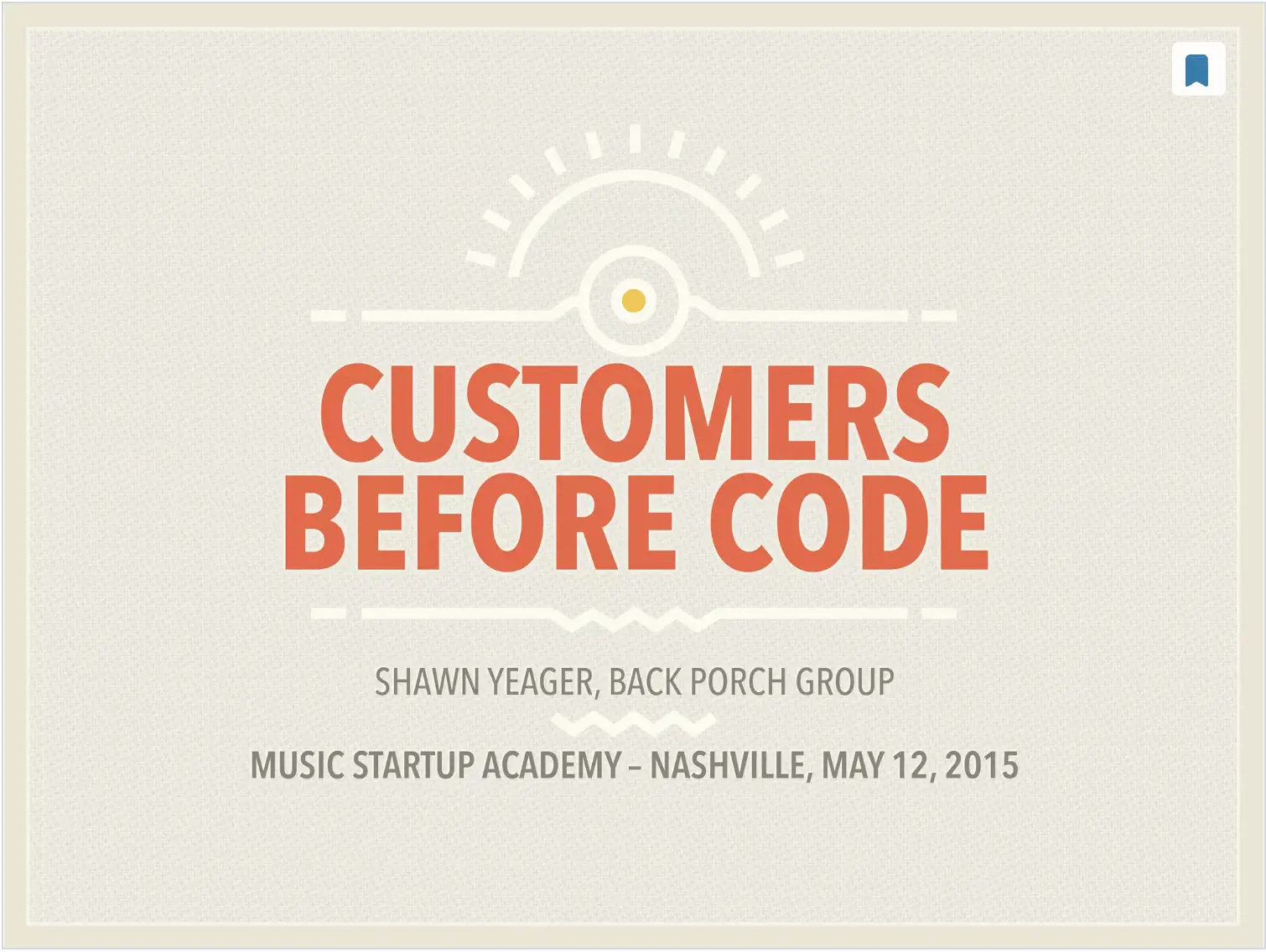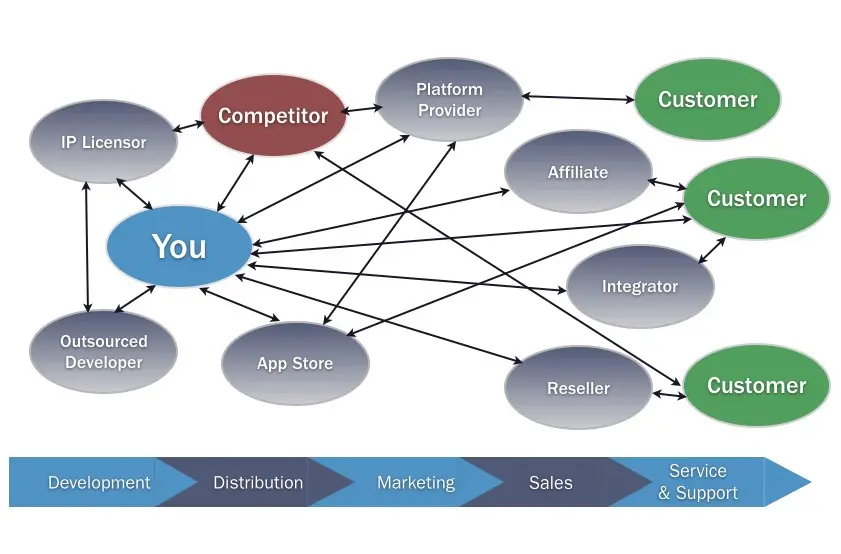Blog
2019

How to win the day when pitching a partnership
Continue reading How to win the day when pitching a partnership2018

Outsourcing development? First, you need a blueprint.
Think of a software product this way: it’s like building a custom home. Except, it’s more like building a boutique hotel. Continue reading Outsourcing development? First, you need a blueprint.

Consensus, leadership, and levers are how open standards thrive. They've eluded the music industry – until now.
With the Music Modernization Act now law, the music industry faces an unprecedented opportunity to develop and adopt open standards. Continue reading Consensus, leadership, and levers are how open standards thrive. They've eluded the music industry – until now.

Unlocking the future of the music industry
Two months ago, we publicly launched Trustream. Here, I share our industry point of view and thesis for starting the company. Continue reading Unlocking the future of the music industry
2015
2014
2013

Music and tech — completely different animals?
Continue reading Music and tech — completely different animals?What the music business can learn from free-to-play
The principles behind F2P make a lot of sense in a lot of ways for the music business. Those selling to fans as well as bands should take note. Continue reading What the music business can learn from free-to-play
2012

Publishers, you're in the software business now.
Pragmatic treat ebooks like software. They manage releases, distribute, and communicate with customers about their products like a software company. This is big. Continue reading Publishers, you're in the software business now.
Why you need channel sales targets now
Channel partnerships are an extension of your direct sales efforts. Treat them that way by setting and measuring against sales targets. Continue reading Why you need channel sales targets now

Make it about the markets and the money
What makes or breaks a channel partnership at the outset isn’t how great the product is, but the opportunity it represents—one defined by expanded markets and increased revenue. More money. Continue reading Make it about the markets and the money

Who you know isn't enough
Simply put, having someone “on the inside” doesn’t close deals. Continue reading Who you know isn't enough
2011
The 3 P's of partnerships
For partnerships to be a source of strategic advantage, we need an alliance capability founded on patience, persistence and pragmatism. Continue reading The 3 P's of partnerships
Pay your partners for performance
Structure agreements that motivate your partners to produce the outcomes you want. Continue reading Pay your partners for performance
Why wxclusivity is a four-letter word
The larger company in a partnership often assumes because of their size and potential impact on your business that they have the right to exclusivity. They’re wrong. Continue reading Why wxclusivity is a four-letter word
You got the meeting. Now what?
How to make the most of a partner pitch Continue reading You got the meeting. Now what?
The end of the Independent Software Vendor
From enterprise software to mobile devices, rarely, if ever, does one company deliver the whole product. Continue reading The end of the Independent Software Vendor








